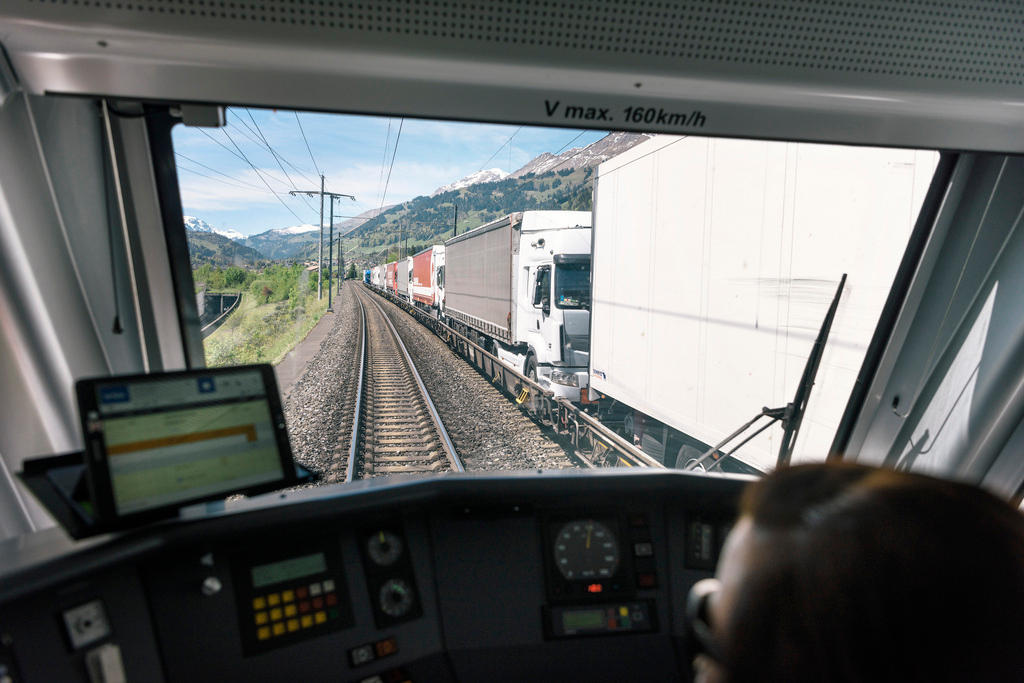
Swiss fail to hit road-to-rail target for heavy goods

The Swiss government has presented a series of new measures to accelerate the transfer of heavy-goods transport from road to rail.
Last year 860,000 lorries crossed Switzerland via motorways and roads, a third fewer than in 2000. But this still remains above the government target of 650,000 annual transits, it said on Thursday.
This is despite the completion of the New Rail Link through the Alps (NRLAExternal link) – which includes the Gotthard, Lötschberg and Ceneri base tunnels – and reforms to the Swiss rail network, the government said.
Air and noise pollution resulting from trucks is still too high in the Swiss Alps, it added.
Swiss voters in 1994 approved an initiative to protect the Alpine region from the negative effects of transit traffic through Switzerland. The government set objectives for lorries and introduced measures to encourage companies to transfer goods traffic to rail. But progress has been slow.
Since existing measures are failing to hit targets, the government has drawn up a new package of measures, presented on Thursday.
Fees for heavy-polluting lorries must be adapted by 2023 to take into account CO2 emissions and new technologies and to encourage firms to use greener vehicles. The government also wants to extend financial support – CHF20 million ($21.4 million) a year – for Swiss rail freight infrastructure until 2028.
The government insists that the NRLA still holds great potential and can strengthen Switzerland’s position as a hub for transalpine freight. The Ceneri Base Tunnel, which went into operation at the end of 2020, allows longer and heavier trains to operate. By the end of 2022, the capacity of the Gotthard Base Tunnel will also be gradually increased to its maximum of six freight trains per hour and in each direction.
However, problems of access in neighbouring countries have prevented the full deployment of the NRLA.

More
Has Alpine rail transport come far enough?

In compliance with the JTI standards
More: SWI swissinfo.ch certified by the Journalism Trust Initiative




























You can find an overview of ongoing debates with our journalists here . Please join us!
If you want to start a conversation about a topic raised in this article or want to report factual errors, email us at english@swissinfo.ch.